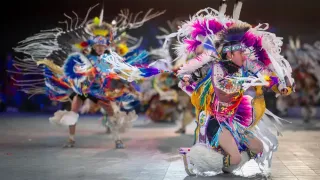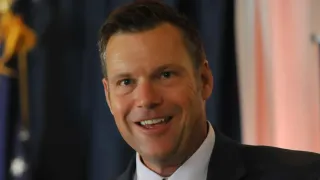
3 hours ago
Two Students Murdered at Nigerian Boarding School for Being Gay
READ TIME: 3 MIN.
On August 13, 2025, two students at a boarding school in Kano State, Nigeria, identified as Hamza Idris-Tofawa and Umar Yusuf-Dungurawa, were beaten to death by a group of fellow students after rumors circulated that they were gay. Two other students, whose identities have not been released, sustained serious injuries and were hospitalized following the same attack .
According to eyewitness accounts, a group of students confronted the victims late at night after hearing rumors about their sexual orientation. The confrontation escalated into violence, with the students being brutally beaten with sticks and other objects. School staff reportedly failed to intervene in time to prevent the deaths. Local authorities have confirmed that several suspects are in custody and an investigation is underway .
The killings have sparked outrage across Nigeria and the international community. LGBTQ+ activists and human rights organizations have condemned the violence and the lack of adequate protection for LGBTQ+ youth in Nigerian schools. Samson Mikel, a prominent Nigerian LGBTQ+ advocate, called the attack "a tragic consequence of extreme homophobia that is both cultural and institutional in Nigeria" .
International watchdog Human Rights Watch also issued a statement urging the Nigerian government to protect LGBTQ+ citizens and ensure perpetrators of hate crimes are brought to justice. The organization pointed to systemic issues, including the criminalization of same-sex relationships and the lack of legal protections for LGBTQ+ individuals, as major contributors to ongoing violence .
Nigeria remains one of the most hostile environments for LGBTQ+ people globally. The Same Sex Marriage (Prohibition) Act of 2014 criminalizes same-sex relationships and the registration of LGBTQ+ organizations, with penalties of up to 14 years in prison. In some northern states, including Kano, Sharia law imposes even harsher penalties, sometimes including death by stoning .
Recent years have seen periodic violence against individuals suspected of being LGBTQ+. In June 2024, a gay couple was beaten and paraded in public in Port Harcourt, while in November 2024, four young men were chased from Benin City for similar accusations . Rights groups say that these incidents reflect deep-seated homophobia, driven by both law and societal attitudes.
The murder of Idris-Tofawa and Yusuf-Dungurawa has intensified calls for urgent reform. Advocates are demanding that the Nigerian government not only prosecute those responsible but also take concrete steps to protect LGBTQ+ youth in schools and repeal laws that enable discrimination and violence .
On social media and at rallies in Lagos and Abuja, activists have organized vigils and demonstrations, calling for justice for the slain students and for Nigeria to uphold its commitments to human rights under international law. "We cannot allow fear and hatred to continue destroying the lives of our youth," said one organizer at a candlelight vigil in Lagos .
The attack is fueling fear and anxiety among LGBTQ+ students and their families across Nigeria. Many are calling for greater support services, including mental health resources and safe spaces in educational institutions. "This tragedy will have a chilling effect," said a counselor at an LGBTQ+ support center in Abuja. "Young people are now even more afraid to be themselves, knowing that rumors alone can be deadly" .
Advocacy groups are also reaching out to international partners for support. Some have called on the United Nations and African Union to pressure the Nigerian government to enact reforms and to monitor the situation closely.
As the investigation continues, activists stress that justice for the victims must include policy change to ensure the safety and dignity of all LGBTQ+ Nigerians. The deaths of Idris-Tofawa and Yusuf-Dungurawa underscore the urgent need for comprehensive anti-discrimination laws, educational campaigns to counter homophobia, and accountability for those who perpetrate hate crimes.
The case has also led to renewed scrutiny of Nigeria’s obligations under international human rights treaties and the role of the global community in holding governments accountable for protecting marginalized communities .






